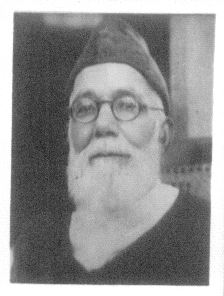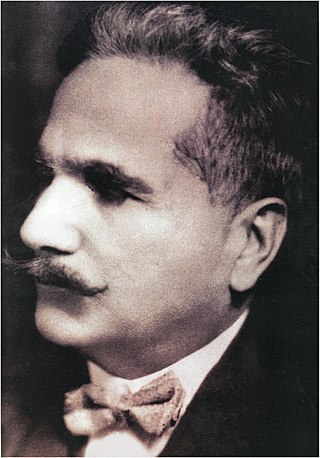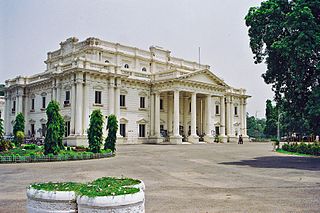This article needs additional citations for verification .(April 2024) |
| Part of a series on the |
| Culture of Pakistan |
|---|
 |
| Traditions |
| folklore |
| Sport |
This is the list of festivals in Pakistan.
This article needs additional citations for verification .(April 2024) |
| Part of a series on the |
| Culture of Pakistan |
|---|
 |
| Traditions |
| folklore |
| Sport |
This is the list of festivals in Pakistan.
| Day | Month | Festival | |
|---|---|---|---|
| 1 | Muharram | New Islamic Year | First day of the Islamic calendar |
| 10 | Muharram | Ashura | Day of Battle of Karbala |
| 12 | Rabi' al-awwal | Eid-Milād-un-Nabī | Birthday of the Prophet Muhammad |
| 27 | Rajab | Miraj-un-Nabi | Muhammad's night journey |
| 14/15 | Sha'ban | Shab-e-Barat | The night of forgiveness |
| 21/23/25/27/29 | Ramadan | Laylat al-Qadr | The night when first verses of Quran were received by Muhammad |
| 29/30 | Ramadan | Chaand Raat | The last night of Ramadan celebrated on 29th or 30th depending on when the new moon is sighted |
| 1 | Shawal | Eid ul Fitr | The celebration at the end of the fasting month (Ramadan) |
| 9 | Dhu al-Hijjah | Day of Arafah | It is celebrated by Muslims through fasting. |
| 10 | Dhu al-Hijjah | Eid al-Adha | The celebration of Abraham's sacrifice |
| | This section needs expansionwith: Category:Festivals in Pakistan. You can help by adding to it. (November 2015) |
Pakistan Day is a momentous milestone in the history of Pakistan movement. This event is held to mark the anniversary of Pakistan Resolution passed by the Muslims of South Asia on 23 March 1940 at Minto Park (now Iqbal Park), Lahore. The resolution was presented by A. K. Fazlul Huq. The nation commemorates this day with great zeal and enthusiasm, to honor the most outstanding achievement of the Muslims of South Asia who passed the historic Pakistan Resolution resulting in the creation of Pakistan under the dynamic leadership of Quaid-e-Azam Muhammad Ali Jinnah; a homeland where they could live in peace, harmony and in accordance with the tenets of Islam. [1]
| Day | Month | Festival | |
|---|---|---|---|
| 23-26 | February | Pakistan Flower Show | Flower Show at Karachi |
| February–March | Jashn-e-Baharaan | The celebrations with the start of Spring season | |
| 23 | March | Pakistan Day | Republic Day and to commemorate the Lahore Resolution |
| 28 | May | Youm-e-Takbir | Celebrated in commemoration of the first Nuclear test |
| 14 | August | Independence Day | Celebrated to commemorate the day when Pakistan gained Independence in 1947 |
| 6 | September | Defence Day | Celebrated in memory of those who died in the Indo-Pak war of 1965 |
| 7 | September | Air Force Day | Celebrated to commend the role of Pakistan Air Force in the 1965 war with India |
| 8 | September | Navy Day | Celebrated to commend the role of Pakistan Navy in the 1965 war with India |
| 9 | November | Iqbal Day | Birthday of Muhammad Iqbal |
| 25 | December | Quaid-e-Azam Day | Birthday of Muhammad Ali Jinnah |

Bagh-e-Jinnah, formerly known as Lawrence Gardens, is a historical park in the city of Lahore, Pakistan. The large green space contains a botanical garden, Masjid Dar-ul-Islam, and Quaid-e-Azam Library.

The University of the Punjab, also referred to as Punjab University, is a public research university located in Lahore, Punjab, Pakistan. It is the oldest and largest public sector university in Pakistan.

The culture of Pakistan is based in the Indo-Persian cultural matrix that constitutes a foundation plank of South Asian Muslim identity. The region has formed a distinct cultural unit within the main cultural complex of South Asia, Middle East and Central Asia. There are differences in culture among the different ethnic groups in matters such as dress, food, and religion, especially where pre-Islamic customs differ from Islamic practices.

The Lahore Resolution, also called the Pakistan Resolution, was a formal political statement adopted by the All-India Muslim League on the occasion of its three-day general session in Lahore, Punjab, from 22 to 24 March 1940, calling for a separate homeland for the Muslims of India.

Javed Iqbal was a Pakistani philosopher and senior justice of the Supreme Court of Pakistan. He was internationally known for his acclaimed publications on philosophy of law and modern Islamic philosophy in international and national journals.
Pakistan has several official national symbols, including a flag, an emblem, an anthem, a memorial tower as well as several national heroes. The symbols were adopted at various stages in the existence of Pakistan and there are various rules and regulations governing their definition or use. The oldest symbol is the Lahore Resolution, adopted by the All India Muslim League on 23 March 1940, and which presented the official demand for the creation of a separate country for the Muslims of India. The Minar-e-Pakistan memorial tower which was built in 1968 on the site where the Lahore Resolution was passed. The national flag was adopted just before independence was achieved on 14 August 1947. The national anthem and the state emblem were each adopted in 1954. There are also several other symbols including the national animal, bird, flower and tree.

Pakistani nationalism refers to the political, cultural, linguistic, historical, religious and geographical expression of patriotism by the people of Pakistan, of pride in the history, heritage and identity of Pakistan, and visions for its future.
Pervaiz Iqbal Cheema was a Pakistani political scientist, cricketer, and a professor of International Relations and was last working as Dean, Faculty of Contemporary Studies, National Defence University, Islamabad - Pakistan.

Pakistan Day or Resolution Day, is a national holiday in Pakistan primarily commemorating the adoption of the first Constitution of Pakistan during the transition of the Dominion of Pakistan to the Islamic Republic of Pakistan on 23 March 1956 making Pakistan the world's first Islamic republic, which remains a member state of the Commonwealth of Nations. The day also celebrates the adoption of the Lahore Resolution by the Muslim League at the Minar-e-Pakistan which called for the creation of an independent sovereign state derived from the provinces with Muslim majorities located in the North-West and East of British India on 23 March 1940.
Malik Barkat Ali was an Indian Muslim politician, lawyer and journalist.

Chaudhry Niaz Ali Khan was a civil engineer, agriculturalist, and philanthropist who founded "Dar ul Islam Movement" and "Dar ul Islam Trust" in South Asia and "Dar ul Islam Trust" Institutes in Pathankot and Jauharabad. Besides a philanthropist, Niaz was also a civil servant, and a landowner. He was the member of All-India Muslim League and a participant of the Pakistan Movement with the ultimate aim of creating the Muslim-majority areas of British India.
Tariq Rahman is a Pakistani academic scholar, newspaper columnist, researcher, and a writer.

Sir Muhammad Iqbal was a South Asian Islamic philosopher, poet and politician. His poetry is considered to be among the greatest of the 20th century, and his vision of a cultural and political ideal for the Muslims of British-ruled India is widely regarded as having animated the impulse for the Pakistan Movement. He is commonly referred to by the honourific Allama and widely considered one of the most important and influential Muslim thinkers and Western religious philosophers of the 20th century.

The Quaid-e-Azam Library is a public library in located within the Bagh-e-Jinnah in Lahore, Punjab, Pakistan. The library was constructed in the mid 19th century during the British Raj and consists of Victorian era Lawrence and Montgomery Halls. The library has a collection of 125,000 books in English, Urdu, Arabic and Persian.
The National Heritage and Culture Division is responsible for the promotion of various facets of culture, including architecture, cinema (films), dance, folklore, literature (Mushaira), music, philosophy, textiles, and theatre. It oversees the implementation and enforcement of cultural policies and activities throughout the country. While many of its functions have been devolved to provincial governments in Pakistan, several institutes continue to operate under its federal oversight.
Hassan Askari Rizvi (SI), is a Pakistani political scientist and military analyst who served as caretaker Chief Minister of Punjab, Pakistan in 2018. He is noted for his work in comparative politics, nuclear weapons, and country's domestic policy.

The National History Museum is a digital museum located in Greater Iqbal Park in Lahore, Punjab, Pakistan. A project of the Parks and Horticulture Authority Lahore, it was inaugurated on 17 April 2018 by Chief Minister Shehbaz Sharif. Citizens Archives Pakistan, a not-for-profit organization, was selected to curate the project. It is the first digital museum of Pakistan.